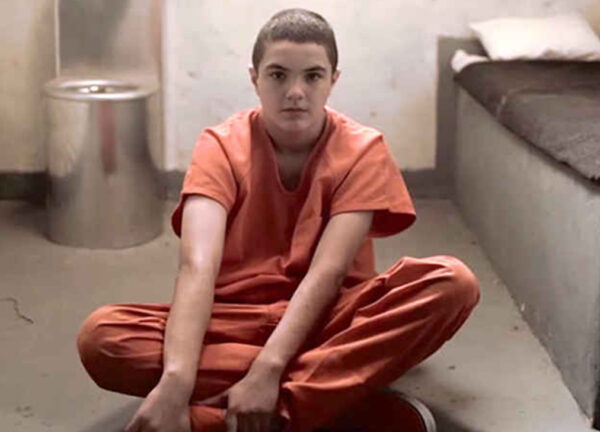ACLU In Federal Court In Michigan Today To Challenge Juvenile Life Without Parole
Locking Up Children Without Possibility For Release Is Unconstitutional, Says ACLU
FOR IMMEDIATE RELEASE
CONTACT: (212) 549-2666; media@aclu.org
DETROIT – The American Civil Liberties Union and the ACLU of Michigan were in federal court today for arguments in a lawsuit on behalf of nine Michigan individuals who were sentenced to life in prison for crimes committed when they were minors and who are being denied the possibility of parole. The U.S. is the only country in the world that sentences youth to life sentences without parole. Currently, there are 350 individuals in Michigan serving mandatory life sentences they received as minors, including more than 100 individuals who did not commit a homicide.
“By ignoring a child’s potential for rehabilitation and denying judges and juries any discretion, the state doles out unforgiving sentences that violate basic fairness and human rights principles,” said Deborah Labelle, attorney for the ACLU of Michigan’s Juvenile Life Without Parole Initiative. “Michigan should put an end to sentencing children to the harshest punishment we have in this state – to die in adult prisons.”
Michigan law requires that children as young as 14 who are charged with certain felonies be tried as adults and, if convicted, sentenced without judicial discretion to life without parole. Judges and juries are not allowed to take into account the fact that children bear less responsibility for their actions and have a greater capacity for change, growth and rehabilitation than adults.
More than 100 individuals in Michigan are currently serving life sentences without the possibility of release in connection with murder crimes, even though they did not commit murder themselves. For instance, Jennifer Pruitt, a plaintiff in the ACLU’s lawsuit, was sentenced to life in prison when she was 16 after she participated in a robbery during which the victim was killed by Jennifer’s friend. And Kevin Boyd, also a plaintiff in the ACLU’s case, was sentenced to life in prison when he was 16 after his mother killed his father. Kevin had given his mother a set of keys to enter his father’s house. Jennifer and Kevin have both been denied any opportunity for release.
The ACLU argued that denying the plaintiffs an opportunity for release constitutes cruel and unusual punishment and violates their constitutional right to a fair hearing to demonstrate their maturity and rehabilitation, as well as customary international human rights law which prohibits the imposition of life sentences without the possibility of parole on anyone under the age of 18.
“Sentencing children to die in prison completely disregards their capacity for rehabilitation,” said Steven Watt, staff attorney with the ACLU Human Rights Program. “In America, we should be giving children an opportunity to turn their lives around – not locking them up and throwing away the key."
Michigan's laws run afoul of the U.S. Supreme Court's admonitions that children must be treated differently in our criminal justice system. In 2010, the Court ruled in Graham v. Florida that sentencing juvenile offenders who did not commit homicide to life in prison without any chance of parole constitutes cruel and unusual punishment. That ruling recognized that juveniles bear less responsibility for their actions than adults and have a greater capacity for change, growth and rehabilitation, and that children should not be punished with the harshest sentence that can be imposed on adults.
“Denying children the possibility of parole is cruel and unusual punishment, pure and simple,” said Ezekiel Edwards, a staff attorney with the ACLU Criminal Law Reform Project. “The United States should join the rest of the world and stop the practice of sentencing youth to spend the rest of their lives in prison.”
The ACLU’s lawsuit was filed in the U.S. District Court for the Eastern District of Michigan against the Governor of Michigan, Director of the Michigan Department of Corrections and Chair of the Michigan Parole Board, in their official capacities.
In addition to LaBelle, Watt and Edwards, the plaintiffs are represented by Robin Dahlberg and Dennis Parker of the national ACLU, Michael J. Steinberg, Dan Korobkin and Kary L. Moss of the ACLU of Michigan and Ronald Reosti.
More information about the case, including the complaint and plaintiff descriptions, is available online at: www.aclu.org/human-rights-racial-justice/hill-et-al-v-granholm


